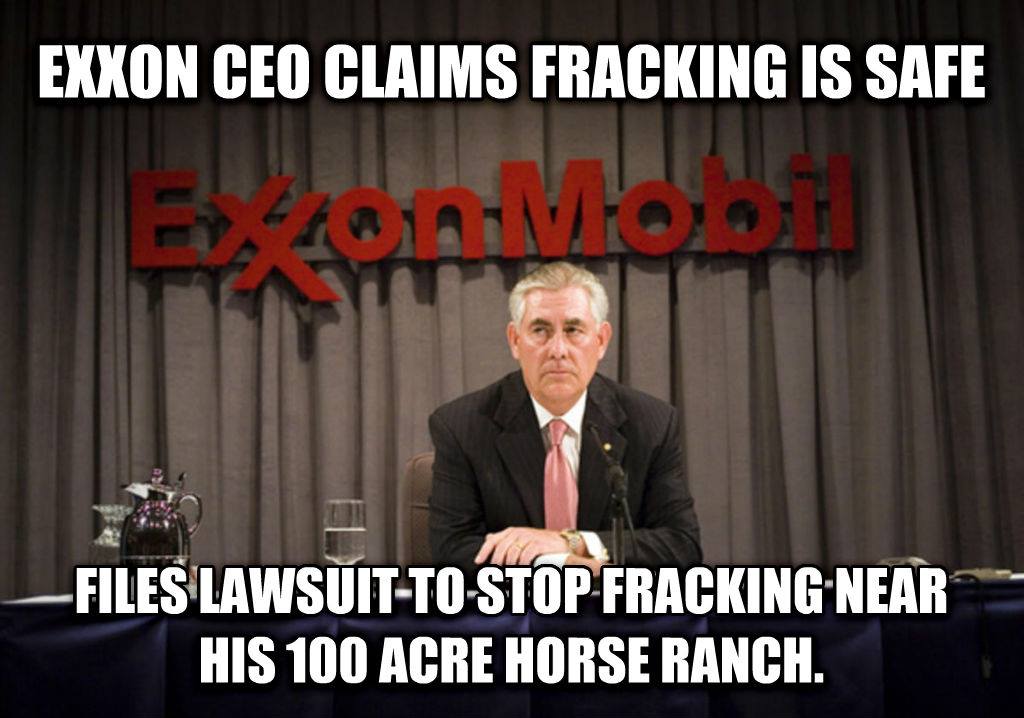If you’ve been following the news on fracking on social media, you will have likely come across a big story about a lawsuit against fracking in Denton County, Texas. And a key spokesperson against the project is ExxonMobil’s CEO Rex Tillerson. The Council of Canadians wanted to provide some tips to Mr. Tillerson about how to fight fracking in his community. Here’s the letter we sent him:
Rex Tillerson
Chairman and Chief Executive Officer
ExxonMobil
Corporate Headquarters
5959 Las Colinas Boulevard
Irving, Texas 75039-2298
Dear Mr. Tillerson,
I am writing to send you a copy of our Fractivist Toolkit: How you can take action to protect water and stop fracking. With all the media buzz that you are fighting fracking in your neighbourhood, I thought you might find some helpful tips.
The Council of Canadians created the Fractivist Toolkit for people exactly in your shoes (minus the whole being CEO to one of the biggest fracking companies in the U.S. thing). In it you will find a summary of what’s happening in Canadian and Indigenous communities (but then again you’re no stranger to fracking in B.C. and Alberta!). You’ll also find tips on how to stop fracking in your community like how to lobby your governments, how to use social media (although your story sure is making the rounds already!) and talking points (and your advantage is you have the industry arguments down pat).
I also wanted to bring your attention to the list of Further Readings and Resources. There’s a section on Information for Landowners that lists resources like the guide Information About Landowner Rights and Fracking in the U.S. that may be particularly useful to you.
Now that you understand where all those “crazy” home and land owners are coming from, I hope you will stop fracking on other people’s lands. As you know, ExxonMobil and Imperial Oil hold one of the largest land leases in the Horn River Basin in northeastern B.C. which is in Fort Nelson First Nation’s territory. According to the B.C. government, Imperial Oil drilled the 5th highest number of wells targeting shale gas reserves in the Horn River Basin from 2003-2011. Scrapping ExxonMobil and Imperial Oil’s plan — under jointly owned WCC LNG Ltd. — to build the Liquefied Natural Gas (LNG) plant in British Columbia would also help others in your shoes since the fracked gas pipelines would run through people’s land. The LNG plant would export up to 30 million tonnes of LNG per year for 25 years and be located in the Kitimat or Prince Rupert regions. There are also ExxonMobil and Imperial Oil’s projects in the Montney and Duvernay shales in Alberta and landowners would certainly appreciate you putting a stop to fracking there as well.
I wish you luck in your fight and like many others, I will be following closely on social media.
Sincerely (and now in solidarity!),
Emma Lui
National Water Campaigner
Council of Canadians



